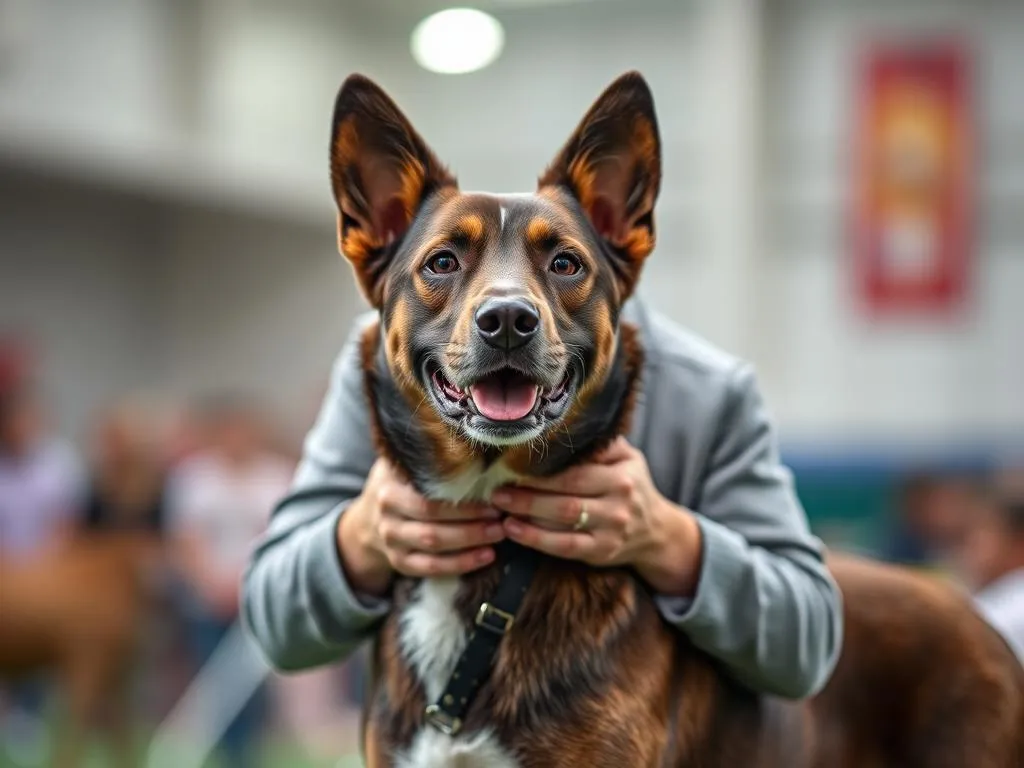
Introduction
Definition of a Show Dog Handler
A show dog handler is a skilled professional responsible for presenting dogs at conformation dog shows. This role is crucial in showcasing a dog’s physical attributes and temperament to judges, thus playing a significant part in the dog’s success in competitions. Handlers not only train and groom dogs but also build a rapport with them, ensuring they present their best selves in the show ring.
Overview of the Article
This article will guide you through the essential aspects of becoming a show dog handler. We will explore the responsibilities of handlers, the skills necessary for success, educational pathways, ways to gain experience, how to build a portfolio, understanding dog breeds, the business side of handling, and the challenges and rewards of this exciting career.
Purpose of the Article
This comprehensive guide aims to help aspiring handlers like you understand the steps, skills, and knowledge required to embark on a fulfilling career in dog handling.
Understanding the Role of a Show Dog Handler
What Does a Show Dog Handler Do?
A show dog handler’s day-to-day responsibilities include training dogs, grooming them for shows, and presenting them in the ring. Handlers must maintain a consistent training regimen that enhances the dog’s performance and ensures they are comfortable in various environments.
During dog shows, handlers are responsible for:
- Preparing the Dog: This includes grooming, bathing, and ensuring the dog is fit and healthy.
- Presenting the Dog: Handlers must exhibit the dog in a way that highlights its best features, using specific techniques to get the dog’s attention and display its stance correctly.
- Interacting with Judges: Handlers need to communicate effectively with judges, understanding their requirements and responding to their queries.
The Importance of Show Dog Handlers
The impact of show dog handlers on a dog’s performance and success cannot be overstated. A skilled handler can significantly enhance a dog’s chances of winning by presenting it in the best possible light. Moreover, handlers play a vital role in building the dog’s reputation in the show community, often becoming a dog’s primary advocate and representative.
Essential Skills and Qualities
Key Skills Required
To excel as a show dog handler, several skills are essential:
- Dog Handling Techniques: Mastery of basic and advanced dog handling techniques is crucial. This includes understanding how to lead the dog, maintaining eye contact, and executing precise movements in the ring.
- Grooming Skills: Grooming is not just about aesthetics; it’s about ensuring the dog is in top condition for shows. Handlers must learn various grooming techniques suited to different breeds, understanding the importance of cleanliness and presentation.
Personal Qualities of a Successful Handler
Successful handlers possess several personal qualities that contribute to their effectiveness:
- Patience and Perseverance: Training dogs can be a long and challenging process. Handlers must be patient, willing to invest time and effort to achieve desired results.
- Communication Skills: Building a rapport with dogs and clients is essential. Handlers must be able to convey instructions clearly and foster a positive relationship with both the dogs they handle and their owners.
Educational Pathways
Formal Education and Training
While formal education is not strictly necessary to become a show dog handler, various courses and certifications can provide a significant advantage. Look for programs that focus on dog handling, grooming, and training techniques. Benefits of formal education include:
- Structured Learning: Courses offer structured content that covers essential theories and practical skills.
- Credibility: Certifications can enhance your credibility and make you more appealing to potential clients and breeders.
Learning from Experience
Hands-on experience is invaluable in this field. Seeking mentorship from experienced handlers offers insights that cannot be gained through formal education alone.
- Volunteer Opportunities: Consider volunteering at dog shows or local kennels. This provides exposure to the inner workings of dog shows and allows you to learn from seasoned professionals.
Gaining Experience
Starting with Your Own Dog
Many handlers begin their careers by training and showing their own dogs. This approach provides a practical learning experience and helps you understand the bond between handler and dog. Here are some tips:
- Training: Start with basic obedience training, gradually moving to more advanced techniques as your dog becomes proficient.
- Showing: Enter local shows to gain experience in a competitive environment, learning how to present your dog effectively.
Working with Breeders and Kennels
Building connections in the industry is essential. Working with established breeders can provide significant learning opportunities.
- Finding Opportunities: Reach out to breeders who might need assistance in training or showing their dogs. This experience helps you learn about different breeds and handling techniques.
- Networking: Developing relationships within the dog show community can lead to future job opportunities and collaborations.
Attending Dog Shows
Attending dog shows as an observer allows you to learn from others and understand the dynamics of the competition.
- Observe and Learn: Pay attention to how experienced handlers present their dogs, noting techniques that you can incorporate into your own practice.
- Network: Engage with other handlers and professionals in the field to expand your network and gain insights into best practices.
Building a Portfolio
Documenting Your Experience
Keeping detailed records of your experiences is vital. Track your participation in shows, including the dogs you handled, the results, and any accolades received. This documentation will serve as a reference when building your resume.
Creating a Handler Resume
A compelling resume highlights your skills, experience, and achievements. Focus on the following:
- Skills: List relevant skills, such as dog handling techniques, grooming abilities, and any formal education received.
- Experience: Detail your experience in dog handling, showcasing your journey from starting with your own dog to working with breeders and participating in shows.
- Achievements: Include any awards or recognition received for your work in dog handling.
Understanding Dog Breeds and Standards
Knowledge of Breed Standards
An in-depth understanding of breed standards is crucial for a successful handler. Each breed has specific characteristics that judges look for during competitions.
- Study Standards: Familiarize yourself with the breed standards of the dogs you handle, focusing on physical attributes, temperament, and behavior.
- Continual Learning: Stay updated on any changes or trends within breed standards to remain competitive in the show ring.
Specializing in a Breed
Choosing to specialize in a specific breed can have both advantages and disadvantages.
- Pros: Specializing allows you to develop an in-depth understanding of a breed’s nuances, enhancing your effectiveness as a handler.
- Cons: Limiting yourself to one breed may narrow your opportunities, so consider how this aligns with your career goals.
The Business of Dog Handling
Setting Up as a Professional Handler
Transitioning to a professional handler involves several legal and business considerations.
- Business Structure: Decide whether to operate as a sole proprietor or establish an LLC. This impacts your liability and tax obligations.
- Insurance: Consider obtaining liability insurance to protect yourself and your clients in case of accidents or issues while showing dogs.
Marketing Yourself
Promoting your services is vital for building a client base. Strategies include:
- Social Media: Utilize platforms like Instagram and Facebook to showcase your work, share success stories, and connect with potential clients.
- Networking: Attend events, join dog handling clubs, and participate in local shows to meet dog owners and breeders who may need your services.
Challenges and Rewards
Common Challenges Faced by Handlers
The path to becoming a show dog handler is not without its challenges.
- Dealing with Competition: The competitive nature of dog shows can be stressful. Developing resilience and a positive mindset is essential for overcoming setbacks.
- Managing Relationships: Handlers often work closely with clients and their dogs, so building and maintaining these relationships is crucial for long-term success.
Rewards of Being a Show Dog Handler
Despite the challenges, the rewards of being a show dog handler are plentiful.
- Personal Satisfaction: Successfully presenting a dog and achieving recognition brings immense satisfaction and joy.
- Building Relationships: The connections formed with dogs, clients, and the dog show community can lead to lasting friendships and a fulfilling career.
Conclusion
In summary, becoming a successful show dog handler requires a combination of skills, experience, and knowledge. By understanding the role and responsibilities, developing essential qualities, pursuing educational opportunities, and gaining hands-on experience, you can embark on this rewarding path. Embrace the challenges and celebrate the successes as you pursue your passion for dog handling. Your journey awaits!









